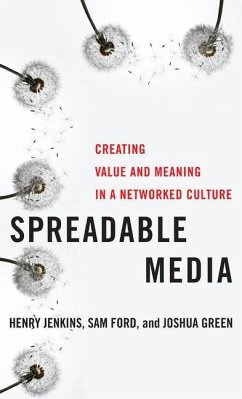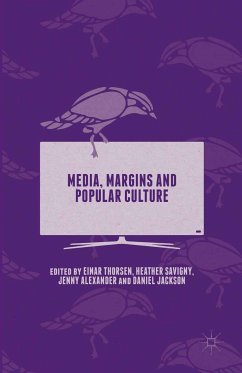Spreadable Media maps fundamental changes taking place in our contemporary media environment, a space where corporations no longer tightly control media distribution and many of us are directly involved in the circulation of content. It contrasts "e;stickiness"e;-aggregating attention in centralized places-with "e;spreadability"e;-dispersing content widely through both formal and informal networks, some approved, many unauthorized. Stickiness has been the measure of success in the broadcast era (and has been carried over to the online world), but "e;spreadability"e; describes the ways content travels through social media. Following up on the hugely influential Convergence Culture: Where Old and New Media Collide, this book challenges some of the prevailing metaphors and frameworks used to describe contemporary media, from biological metaphors like "e;memes"e; and "e;viral"e; to the concept of "e;Web 2.0"e; and the popular notion of "e;influencers."e; Spreadable Media examines the nature of audience engagement,the environment of participation, the way appraisal creates value, and the transnational flows at the heart of these phenomena. It delineates the elements that make content more spreadable and highlights emerging media business models built for a world of participatory circulation. The book also explores the internal tensions companies face as they adapt to the new communication reality and argues for the need to shift from "e;hearing"e; to "e;listening"e; in corporate culture. Drawing on examples from film, music, games, comics, television, transmedia storytelling, advertising, and public relations industries, among others-from both the U.S. and around the world-the authors illustrate the contours of our current media environment. They highlight the vexing questions content creators must tackle and the responsibilities we all face as citizens in a world where many of us regularly circulate media content. Written for any and all of us who actively create and share media content, Spreadable Media provides a clear understanding of how people are spreading ideas and the implications these activities have for business, politics, and everyday life.
Dieser Download kann aus rechtlichen Gründen nur mit Rechnungsadresse in A, B, BG, CY, CZ, D, DK, EW, E, FIN, F, GR, HR, H, IRL, I, LT, L, LR, M, NL, PL, P, R, S, SLO, SK ausgeliefert werden.









